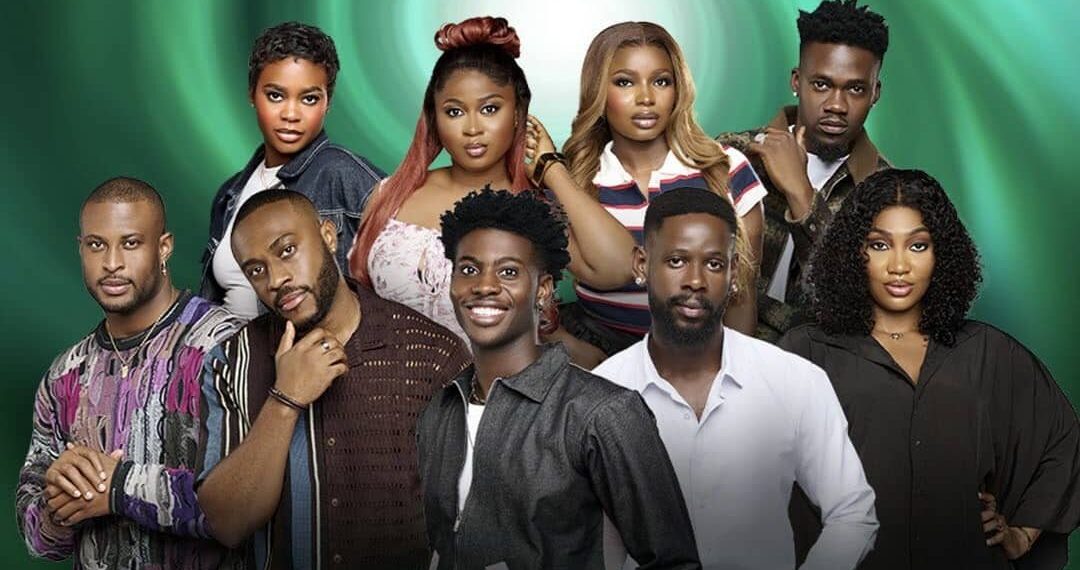In today’s fast-changing world, fashion isn’t just about clothes—it’s a powerful statement of identity and belonging. As we head into 2025, the styles we choose reflect much more than trends; they represent our values, backgrounds, and even the communities we build both on and offline. From the energetic streets of Lagos to creative hubs in Accra, fashion in West Africa is setting its own pace, fuelled by the influence of TikTok challenges, thrift-store gems, and the visual language of Instagram.
Nigerians, especially, have mastered the art of remixing global trends with their own cultural references, drawing inspiration from local histories, street-wise creativity, and playful nods to pop nostalgia. This unique blend is giving new life to everything from Y2K nostalgia and Alte underground cool to the vibrant evolution of streetwear. Based on current street surveys and the stories of those shaping the scene, here are five aesthetics that are defining wardrobes and shaping identities in Nigeria and across West Africa right now.
1. Vintage
Vintage fashion is having a remarkable resurgence in Nigeria, as younger generations turn to timeless pieces from the 1970s through the 1990s for inspiration. The result? A landscape rich in elegant details, including wide-lapel suits for men, brilliantly coloured adire fabrics, tailored wrapper-blouse sets, intricate hand-beaded aso oke, and bold kaftan prints. According to Lagos-based stylist Tola Adeniran, “There’s a pride in wearing what your parents or grandparents wore, but making it your own.”
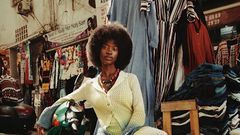
Vintage
Nigerian fashion designers of the past often worked with high-quality natural fibres—cotton, silk, linen—executed by expert local tailors who married indigenous traditions with international silhouettes. Today, the vintage revival is fuelled by bustling thrift markets, Instagram-based resellers, and dedicated boutiques. Far from being solely about nostalgia, young people are embracing vintage for its individuality, craftsmanship, and sustainable edge. These one-of-a-kind pieces offer a welcomed contrast to today’s fast fashion and have become a creative way to stand out while honouring Nigeria’s fashion heritage. According to a recent report by the Business of Fashion, resale and thrift shopping have grown by over 20% in many African cities, showing no sign of slowing down.
2. Resort/Beach Glam
Jet-set style is no longer reserved for holidays abroad. Even if international travel remains out of reach for many, Nigerians have found ways to channel vacation vibes right at home. “We may not all go to Dubai,” quips Abuja-based designer Chioma Nwosu, “but we can look like we just returned from an island.” Resort or beach glam is all about polished, escapist looks that fit anywhere—whether at a Lagos pool party, on a Lekki rooftop, or at a weekend getaway along the West African coast.
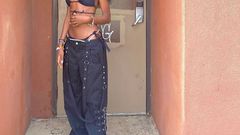
Resort/Beach Glam
Key elements of this aesthetic include chic swimsuits, bra tops styled with high-waisted jeans, airy or sheer maxi dresses, and woven bags. Accessories like oversized sunglasses, statement hats, and strappy sandals complete the look. What sets this trend apart is its deliberate, curated feel—every detail is intentional.
A wave of Nigerian designers have launched locally made swimwear and resort wear brands, providing both high-end and affordable options for those eager to embrace the look. According to fashion entrepreneur Ifeoma Okezie, thrift shops remain essential for students and young professionals cultivating resort-inspired wardrobes on a budget. As this aesthetic grows, it reflects a wider desire among young West Africans to express optimism and the aspiration to belong on the global style stage—even from home.
3. Y2K
If you scroll through TikTok or walk onto any Nigerian university campus, the Y2K explosion is unmistakable. Early-2000s staples—low-rise jeans, shiny handbags, cropped tees, and butterfly clips—have made a dramatic comeback. Previously dismissed as “tacky,” the Y2K vibe is being reimagined and slotted into modern wardrobes, especially by Gen Z, many of whom are exploring these styles for the first time or reclaiming trends from their early childhood.
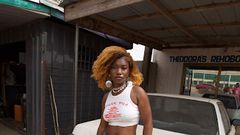
Y2K Fashion
In Nigeria, Y2K-inspired finds fill the racks of popular “bend down select” markets and often appear in creative combinations—think sparkly tops with denim mini skirts, accessorised with bold lip gloss, elaborate braids, and retro sneakers. High-profile artists and influencers are driving Y2K’s popularity, blending it seamlessly with local prints and jewellery for a truly hybrid look. Fashion critic Dimeji Okonkwo explains, “For Gen Z, Y2K is about freedom. It’s a way of reclaiming the playful, unapologetic spirit of the early 2000s, but on their terms.” The trend reflects a cyclical nature of style, but also highlights the power of social media in reviving and localising global ideas.
4. Streetwear
Streetwear in Nigeria has broken free from its stereotype of oversized t-shirts and sneakers to become an innovative, multifaceted movement. Essential pieces still include baggy tees, cargo slacks, bucket hats, and statement footwear, but Nigerian streetwear goes further by merging hip-hop, Afrobeats, and urban skate culture into one dynamic style eco-system. According to Lagos-based streetwear designer Uche Onyewuchi, “True streetwear is about identity and community. We use fashion to challenge stereotypes, not just look cool.”
Distinct collectives in Lagos, Abuja, and Accra are mixing international influences with local creativity. Brands like Severe Nature, WAF, and Street Souk have risen to prominence by supporting young designers and encouraging everyone to put their own stamp on the trend. As a result, Nigerian streetwear is now instantly recognisable—aspirational, creative, and distinctly homegrown.
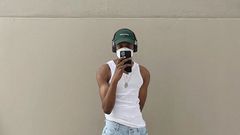
Streetwear
What’s more, streetwear isn’t static—elements from Y2K and vintage styles are frequently borrowed, resulting in layered, highly personalised looks. For many young Nigerians, streetwear is a mode of resistance, a badge of pride, and an urban uniform signalling that their voices—and their stories—matter. This aligns with global streetwear currents, yet the distinctly Nigerian and West African interpretations ensure the culture stays uniquely local.
5. Alte
The Alte movement stands as perhaps the boldest rejection of the mainstream, rooted in underground music and radical creativity. “Alte” (shorthand for “alternative”) was first popularised in the 2010s by young artists who wanted to break away from Afrobeats conventions. Creative pioneers like Denrele Edun—long known for platform boots and daring makeup—were pushing boundaries before the term even existed. Today, Alte is a thriving movement, thanks to a community of artists, photographers, stylists, and everyday Nigerians who use fashion to redefine what it means to belong.
Alte style is all about experimentation: thrifted and DIY looks, innovative hair, and visual storytelling reminiscent of old VHS clips or lo-fi films. These looks often accompany music that fuses neo-soul, trap, and psychedelic pop—an act of cultural rebellion and creative freedom. Followers of the movement, according to Lagos culture writer Funmi Williams, “aren’t dressing for approval—they’re dressing to be seen as individuals.” In a culture often obsessed with appearing polished, Alte embraces imperfection and authenticity, inspiring a generation to accept and celebrate difference.
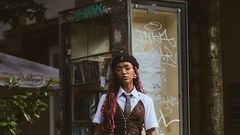
Alte
Personal style in 2025 in Nigeria and West Africa is inseparable from these powerful aesthetics. Whether you’re drawn to vintage’s nostalgic craftsmanship, the escapist fantasy of resort glam, the iconic rebellious edge of streetwear, or the freedom of Alte, these movements are steadily reshaping the way people dress and express themselves. Their stories reflect broader shifts in culture and creativity across the continent, demonstrating how fashion isn’t just what you wear—it’s who you are, and who you choose to become.
What about you? Which of these aesthetics feels most like you, or do you have a style all your own? We’d love to read your perspectives. Leave a comment below and join the conversation about how fashion is shaping today’s Nigeria and Africa’s future. Follow us on social media for more culture and style stories from across the continent!
Want to see your own story featured here or sell your culture and style insights? Share your fashion journey with us! Email story@nowahalazone.com to have your story published or to discuss story sales. For general support or feedback, contact support@nowahalazone.com.
Connect with us and become part of our vibrant online community:
Facebook |
X (Twitter) |
Instagram
What’s your view? Drop a comment and keep following for more local and global style updates!



